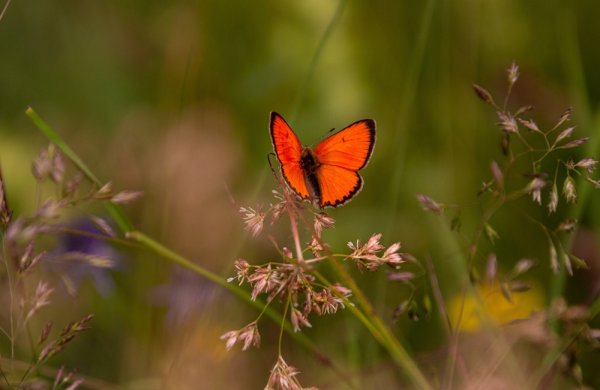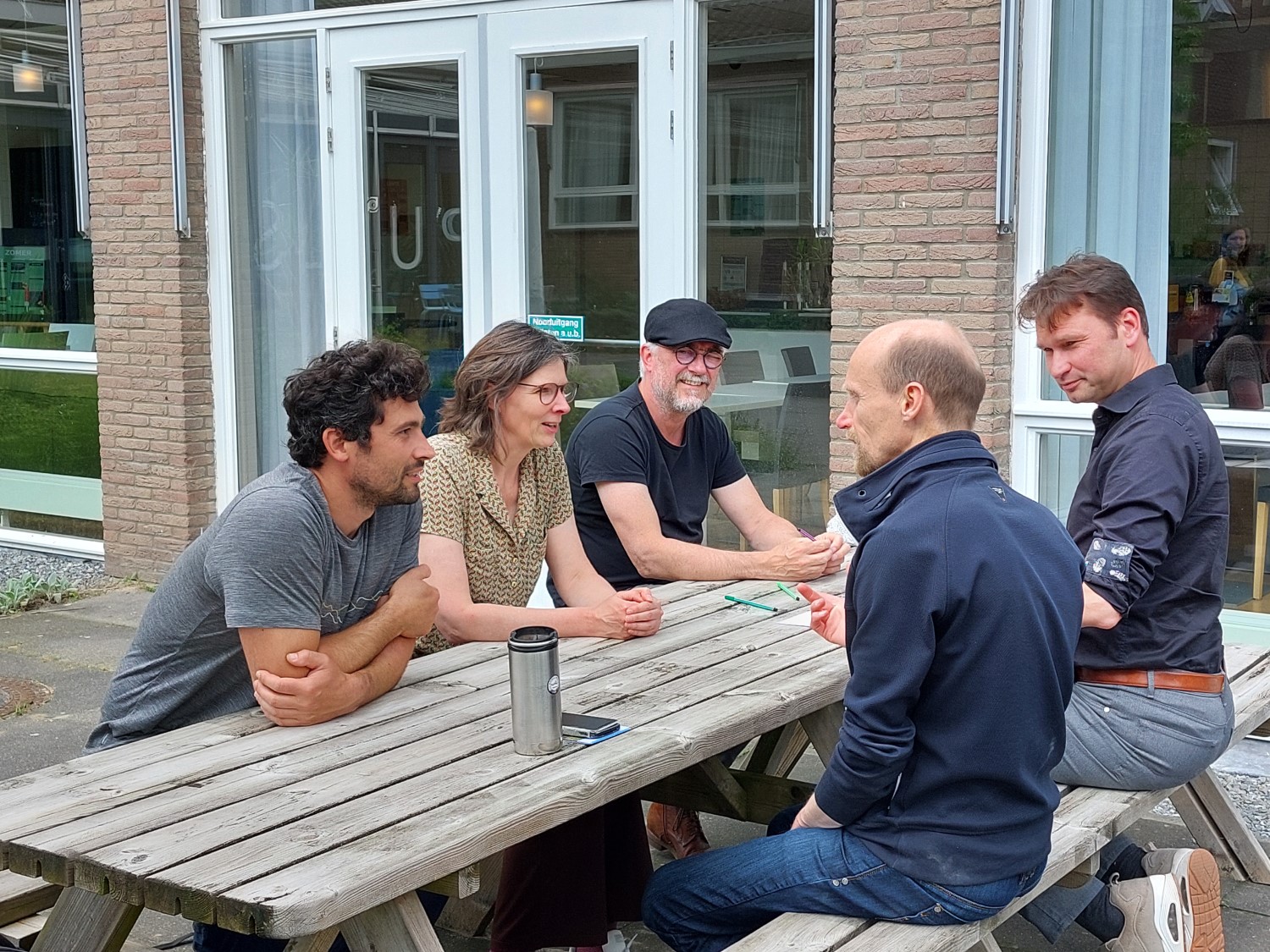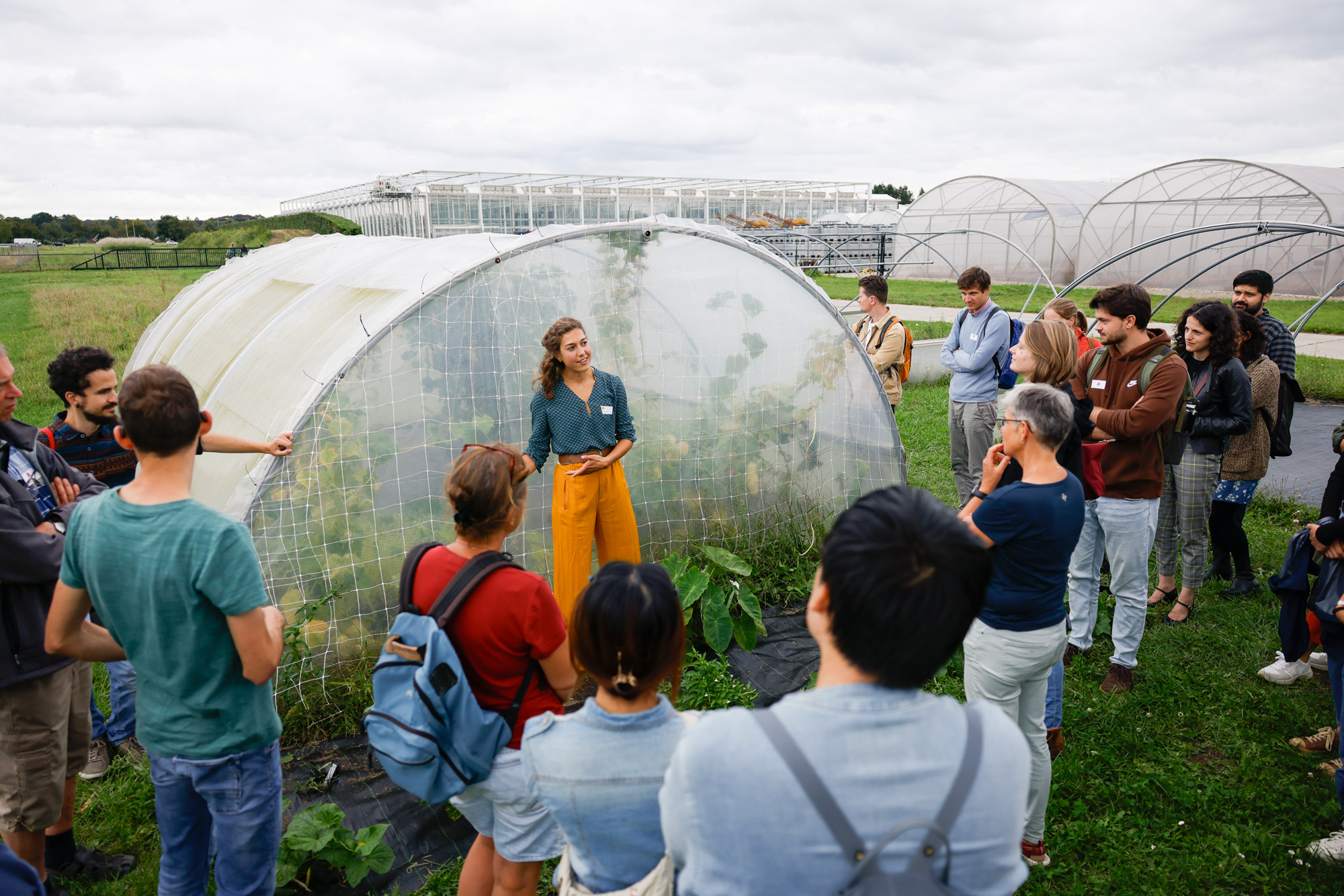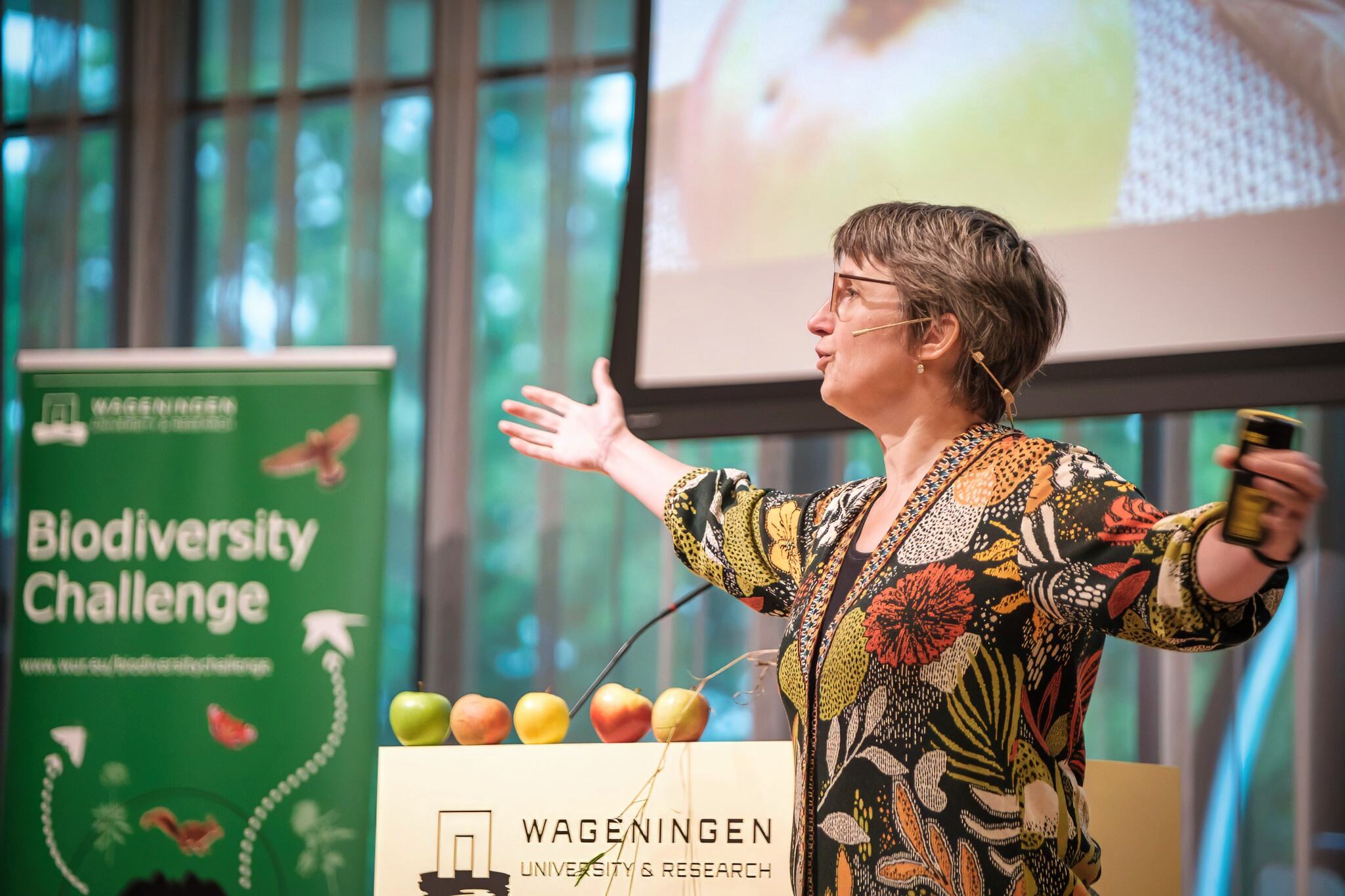
Longread
Wageningen Biodiversity Initiative: 'First WUR, then the rest of the world'
From Wageningen Campus to the United Nations Science Summit: the Wageningen Biodiversity Initiative has extended its reach. Three years of intensive collaboration has created awareness among academics, policy makers and world leaders and facilitated new research. "But we’ve got a long way to go," according to Professor Liesje Mommer and KB programme leader Lawrence Jones-Walters.
More and more academics from Wageningen University & Research (WUR) are sharing their concerns about biodiversity loss. For that reason, Liesje Mommer, Lawrence Jones-Walters, Jeanne Nel and other researchers from all corners of WUR actively sought the limelight. Something needed to change regarding the sharp decline in diversity in species, genes and ecosystems around the world. In 2021, they formed the Wageningen Biodiversity Initiative (WBI): a platform for employees and students wanting to make a significant contribution to reversing the curve of biodiversity loss. Thanks to the efforts of the WBI team, their ambassadors and supporters, the concept of biodiversity is now an integral part of Wageningen's mission.
In her office overlooking the nature garden of university building Lumen, Prof. Liesje Mommer talks about establishing the initiative. "It wasn’t necessarily a given. To get where we are today, a growing number of people have done a lot of hard work." With tireless perseverance, they have shown more and more people, both inside and outside WUR, that biodiversity is indispensable for life on our planet. And thus for our own survival.
- Unfortunately, your cookie settings do not allow videos to be displayed. - check your settings
A transdisciplinary topic
Dr Lawrence Jones-Walters, one of the core WBI team members, says that biodiversity had been an important issue for him and Mommer for a long time. “We discussed our concerns as well as our desire to take action. We felt that a driving force was needed." The IPBES (Intergovernmental Science-Policy Platform on Biodiversity and Ecosystem Services) report published in 2019 was the spark that ignited their fire. The report showed the alarming trend of biodiversity loss - due to human activities. Like climate change, biodiversity loss is a problem with a positive feedback loop: the worse it gets, the more the process accelerates. Jones-Walters and Mommer had to move fast.
That afternoon, the foundation was laid for the story of the Wageningen Biodiversity Initiative: biodiversity loss is an issue that transcends all science disciplines.
The WBI's first big opportunity was the opening of Omnia in 2022. University building Omnia was opened with the explicit mission of facilitating dialogues on complex issues. Mommer: “On the first opening day, we brought together 150 academics and students and asked them: what do you think it will take to bend the declining biodiversity curve in the food system? During that afternoon, the foundation was laid for the story that the Wageningen Biodiversity Initiative would tell: biodiversity loss is an issue that transcends all science disciplines."

Working together to halt biodiversity loss
"Biodiversity loss is a problem for us all, which is why we must also solve it together," Mommer summarises. "The immediate causes of biodiversity loss are overexploitation, pollution and climate change. However, if we look at the underlying cause, it is the way we produce our food: as efficiently, cheaply and homogeneously as possible. And it’s our planet, the future generations, who will foot the bill. We need to work together with nature, also in the food system."
Some of the principles are: there should be more space for nature on farms and in the landscape. Nutritious food must become sustainable, accessible and affordable. The financial sector needs to support sustainable change. People must feel connected and have their voices heard. "To achieve all that, we not only need ecologists but also animal scientists, behaviourists, engineers, and economists. They need to know how to find each other and they need to work together," Mommer emphasises. "That's what the WBI does: it brings people together and produces ideas that contribute to concrete action."
Biodiversity knowledge and data
“Working together so intensively requires knowledge and data," Jones-Walters argues. Even before the establishment of the WBI, he led the Knowledge Base programmes that would eventually be given the name 'Nature-Inclusive Transitions'. Funded by the Ministry of Agriculture, Nature and Food Quality (LNV), this research programme has produced nearly 50 projects related to biodiversity. "Many of the project leaders also play an important role in the WBI. This resulted in very effective cross-fertilisation between our programme and the WBI."
Jones-Walters mentions the strip cultivation project, led by Dr Dirk van Apeldoorn, for example. This involves growing different crops side by side in strips to increase crop diversity. "Van Apeldoorn is active in the Biodiversity Initiative and this is clearly reflected in the project." Jones-Walters also mentions the project in which Dr Arjen de Groot and colleagues are bringing together new technologies to monitor the biodiversity of food forests. "De Groot’s project makes it possible to collect biodiversity data on a much larger scale. This is the only way in which we can discover which alternative food systems really work.”
Biodiversity-positive food systems
All the knowledge from Nature-Inclusive Transitions and the WBI is ultimately intended to support policy aimed at promoting a nature-inclusive future. Another nice example of knowledge-based policy is the new European soil law. This involved a group of soil health experts coming together to make their scientific contribution - their action fuelled with help from the WBI.

"WUR has also joined the Nature-Positive Universities alliance," says Mommer. "And the WBI was a driving force behind the investment theme 'Biodiversity-Positive Food Systems'. As I said, I believe our food system is one of the key factors in biodiversity issues, so I’m very proud that we have facilitated new fundamental research into alternatives."
Thanks to the WBI, the story about the importance of biodiversity reached far beyond Wageningen's borders. In 2022, Mommer gave the Mansholt lecture in Brussels, along with Jeanne Nel and numerous other WUR colleagues. "In the Mansholt lecture, WUR presents itself to the outside world. As such, this was an important moment for our initiative. That’s how I’ve always pictured it: WUR first, then the rest of the world," says Mommer. The world stage followed sooner than expected. "We were at the climate summit in Egypt, the United Nations Science Summit, one of the most important meetings for academics, policy makers and NGOs in the world." The United Nations calls biodiversity our strongest natural defence against climate change and WWF argues that biodiversity supports everything in nature we need to survive: food, clean water, medicine and shelter.
Counting species on campus
"We want academics, policy makers and the public to understand that biodiversity matters to everyone. Along with biodiversity, we are losing ecosystem resilience and therefore our buffer against climate change, our food sources, and simply intrinsically valuable nature."

In everyday life too, we must become more aware of the biodiversity, or the lack thereof, around us. The Wageningen Biodiversity Challenge can make a difference here. The biodiversity event for all WUR students and employees started small, with just a few enthusiasts, but has grown into an international alliance to celebrate biodiversity with some 20 European universities. This year, the city of Wageningen also took part in the Challenge. "People don’t always see what's around them and what has been lost," says Jones-Walters. "The Biodiversity Challenge is a wonderful way for everyone to experience what is at stake."
Connecting knowledge about biodiversity
"The time has come to convert awareness, ambition and collaboration into impact," argues Mommer. "More and more researchers understand how all-encompassing the problem of biodiversity loss is and a lot of valuable knowledge is already being gathered, not least in Wageningen. The next step is to start incorporating that knowledge into the solutions we develop with companies, government agencies and the public. By bringing together different perspectives, we can apply the resulting knowledge in society. Transitions are needed, time is running out.”
The time has come to convert awareness, ambition and collaboration into impact.
When it comes to recognising our own role in ecosystems, Mommer proposes another important theme: our shared responsibility - as citizens, consumers and professionals. “Companies regularly ask us: 'Tell us what to do and we'll do it.' But there are no such quick, ready-made solutions." Mommer would like to see WUR investing more, for example in roundtable sessions where academics, industry and government agencies explore paths to nature-inclusive futures. "What it means to do nothing, what you can do and how to make that concrete. Companies need to learn more about their place in the ecosystem and their ecological footprint and take responsibility. Then my and their children can also continue enjoying our wonderful planet."